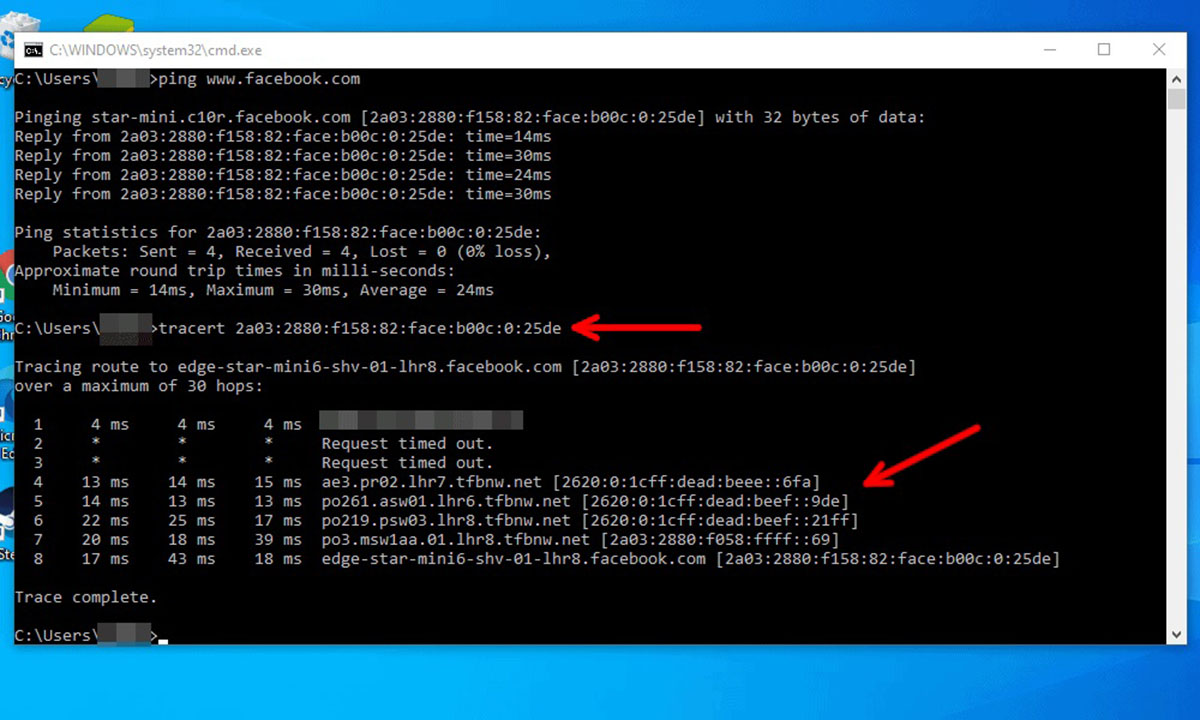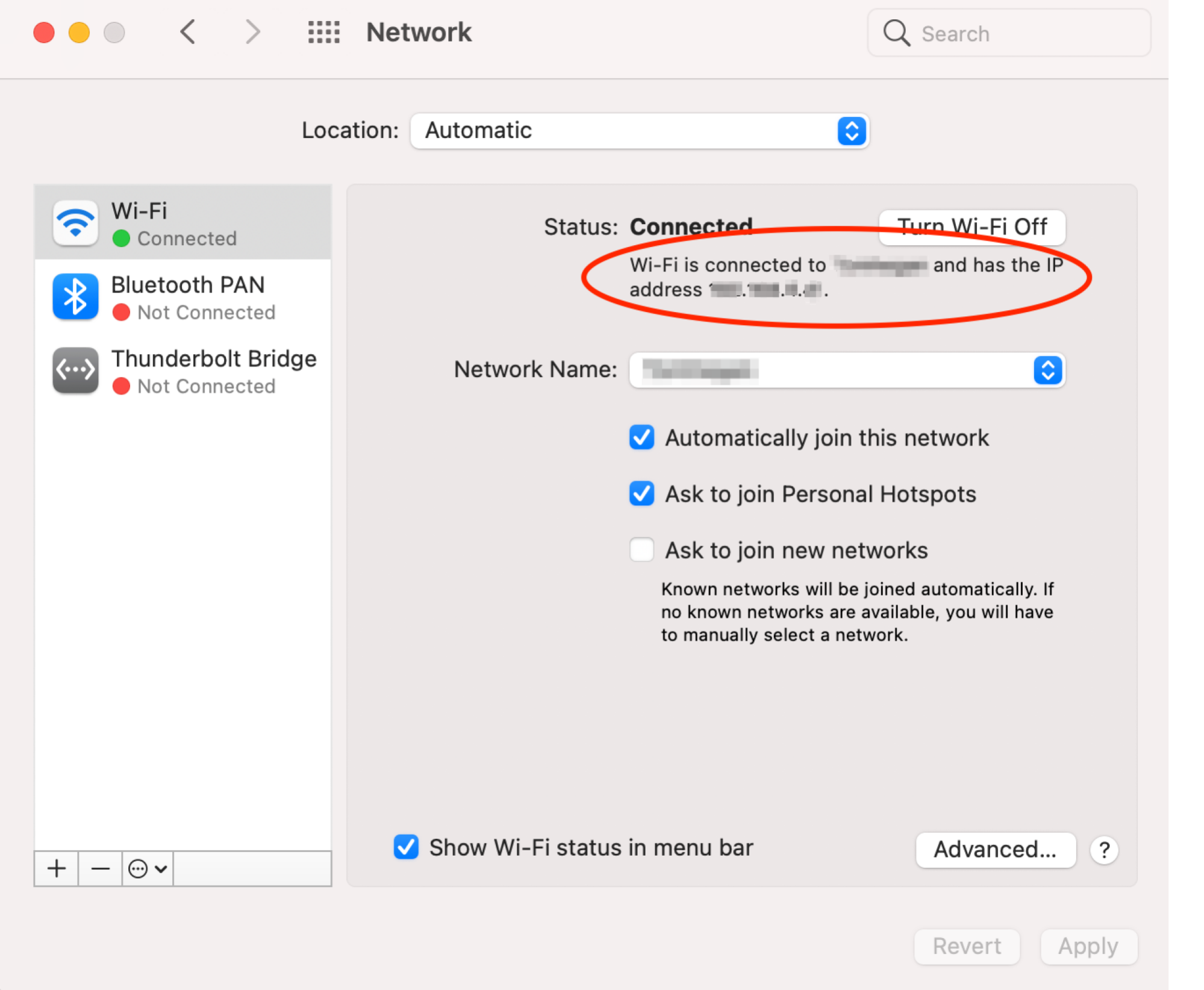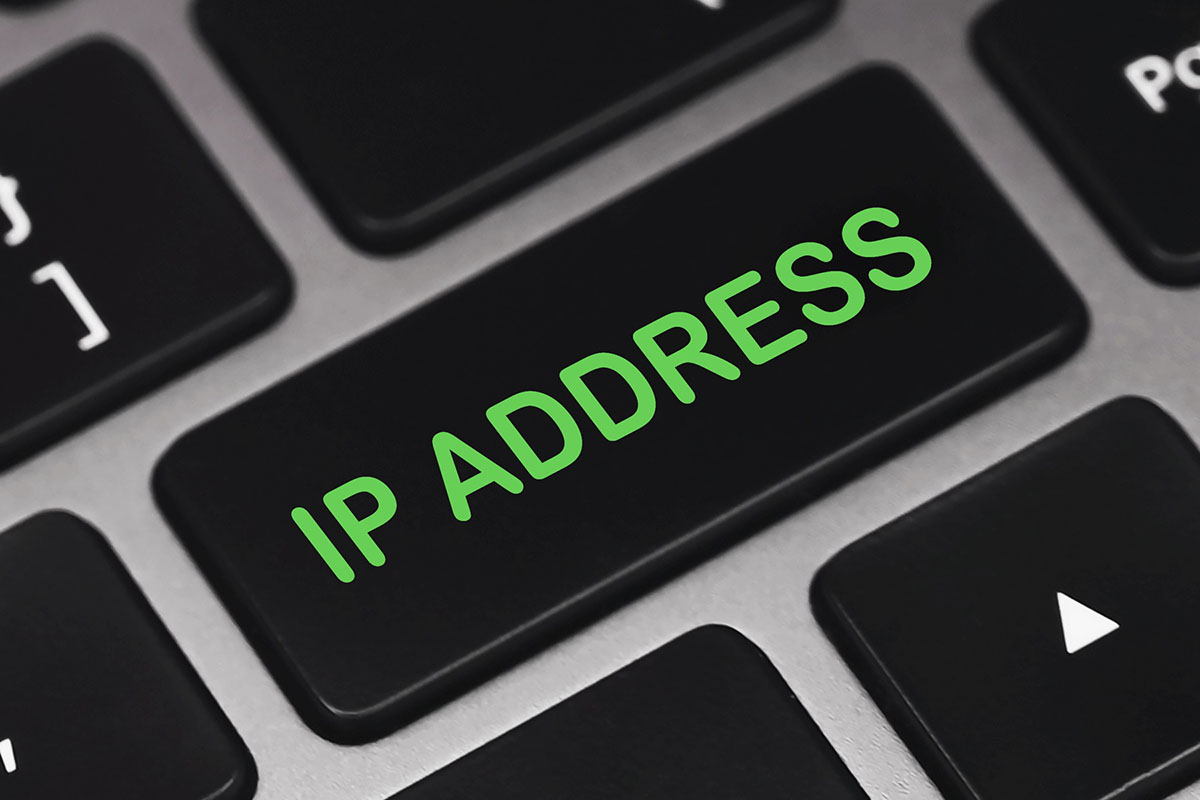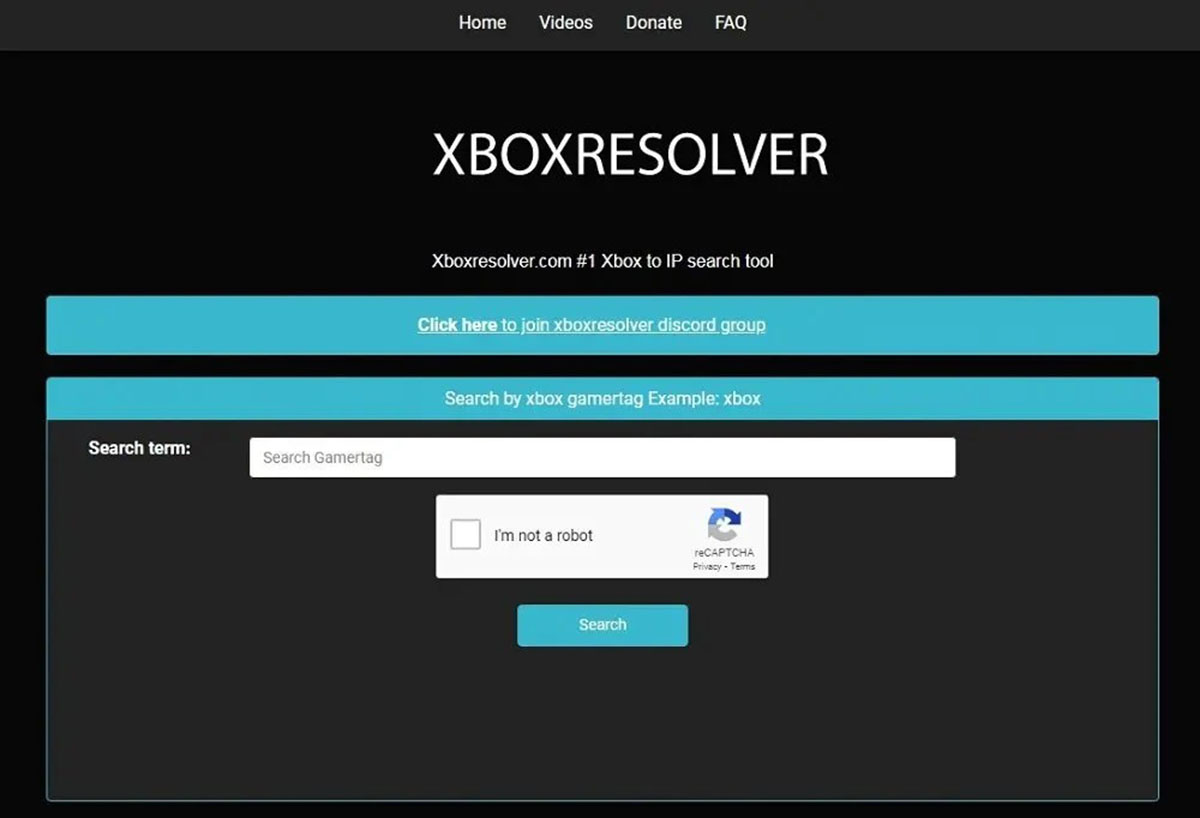Introduction
Tracking the IP address of someone can be a valuable tool in various situations. Whether you are investigating cybercrime, trying to identify a potential hacker, or simply curious about the location of a website visitor, understanding how to track an IP address can provide valuable insights. An IP address is a unique identifier assigned to every device that connects to the internet. By tracking this address, you can gather information about the origin of online activities and potentially determine the physical location of the device.
However, it is crucial to approach IP tracking with caution and within legal boundaries. While tracking IP addresses can be helpful, it is essential to respect privacy rights and adhere to local laws and regulations. It is crucial to ensure that your actions are legal and ethical when tracking someone’s IP address.
This article aims to provide an overview of different methods you can use to track someone’s IP address, highlighting both lawful and ethical considerations. From analyzing email headers and social media platforms to using network monitoring tools and engaging with internet service providers (ISPs), we will explore various strategies for IP tracking. Additionally, we will discuss steps to protect your own IP address from unnecessary exposure.
It is important to note that the information provided in this article is for educational purposes only. Any use of IP tracking should be done within the confines of the law and respect for privacy rights. Understanding the potential methods and legal considerations involved in IP tracking can help you navigate the digital landscape more responsibly and ethically.
Understanding IP Addresses
Before diving into the various methods of tracking IP addresses, it is essential to have a basic understanding of what an IP address is and how it functions. IP stands for Internet Protocol, and an IP address is a unique numerical identifier assigned to every device that connects to the internet.
An IP address consists of a series of numbers, separated by periods, such as 192.168.0.1. This address serves as a location tag for devices, allowing them to communicate with each other across the internet.
There are two main types of IP addresses: IPv4 and IPv6. IPv4 addresses are in the format of four sets of numbers ranging from 0 to 255, such as 192.168.0.1. These addresses are currently the most widely used. However, due to the increasing number of devices connecting to the internet, IPv6 addresses were introduced. IPv6 addresses have a longer format consisting of eight sets of alphanumeric characters, providing a significantly larger pool of unique addresses.
An IP address can reveal certain information about the device and its location. The first few digits of an IP address indicate the network to which the device is connected. The remaining digits indicate the specific device within that network. However, it is important to note that IP addresses alone cannot provide precise location information, such as an address or street name. They can only provide a general idea of the city or region where the device is located.
Furthermore, IP addresses can be static or dynamic. Static IP addresses do not change and are typically assigned to servers or devices that require a consistent online presence, such as websites. On the other hand, dynamic IP addresses are temporary and are assigned to devices by an internet service provider (ISP) each time they connect to the internet. Dynamic IP addresses allow more efficient use of available addresses within an ISP’s network.
Understanding the basics of IP addresses is crucial for tracking and interpreting the information they provide. By recognizing the different types and functions of IP addresses, you can better navigate the methods of IP tracking discussed in this article.
Why Track IP Addresses?
There are several reasons why you might want to track someone’s IP address. Understanding the motivations behind IP tracking can help shed light on its importance and potential applications in various contexts.
One of the primary reasons for tracking IP addresses is for cybersecurity purposes. In an increasingly digital world, cybercrime is a significant concern. By tracking IP addresses, individuals and organizations can identify potential hackers, investigate unauthorized access attempts, and gather evidence for legal action. Tracking IP addresses can be a crucial step in protecting sensitive information and maintaining the security of online systems.
In addition to cybersecurity, IP tracking is often utilized for web analytics and marketing purposes. Website owners and businesses can track IP addresses to gain insights into their website visitors, such as their geographical location, browsing behavior, and preferences. This information can help them tailor their marketing strategies, improve user experience, and target specific demographics more effectively.
Law enforcement agencies also rely on IP tracking to investigate various types of crimes. Tracking IP addresses can provide vital clues in cases involving cyberstalking, harassment, online fraud, and illicit activities. By identifying the IP address associated with a specific crime, law enforcement can narrow down their search and gather evidence for legal proceedings.
Furthermore, IP tracking can play a role in preventing abuse and enforcing online terms of service. In cases of harassment, abuse, or violation of platform guidelines, tracking IP addresses can help identify and take appropriate action against the perpetrators. This can contribute to creating a safer and more secure online environment for users.
It is important to emphasize that while tracking IP addresses can be beneficial, it should only be done within the bounds of legality and ethical considerations. Respecting privacy rights and following applicable laws and regulations is crucial to ensure the responsible use of IP tracking methods.
Overall, tracking IP addresses serves various purposes, including cybersecurity, marketing analysis, law enforcement, and maintaining online safety. Understanding the motivations behind IP tracking can help individuals and organizations make informed decisions and utilize the appropriate methods to track IP addresses responsibly.
Legal Considerations
When it comes to tracking IP addresses, it is essential to navigate within the boundaries of legal frameworks and respect privacy rights. Different jurisdictions may have varying laws and regulations regarding the collection and use of IP address information. Understanding and adhering to these legal considerations is crucial to ensure the responsible and lawful use of IP tracking methods.
One of the primary legal considerations is obtaining proper consent. In many jurisdictions, tracking someone’s IP address without their consent is considered a violation of privacy. It is crucial to obtain legal consent from the individual or have a valid legal basis, such as investigating a cybercrime case or preventing harm. Always ensure you are compliant with applicable data protection and privacy laws, such as the General Data Protection Regulation (GDPR) in the European Union.
It is also important to be aware of your legal rights and limitations when tracking IP addresses. Understand the boundaries of what is considered lawful and avoid invading someone’s privacy beyond what is legally permissible. Be cautious of any local laws or regulations that may prohibit or restrict certain IP tracking activities.
Additionally, it is crucial to recognize the potential limitations and challenges in accurate IP tracking. IP addresses can be dynamic and easily masked through the use of virtual private networks (VPNs) or proxy servers. It is important to verify the accuracy and reliability of the IP address information before taking any action based on it.
Consulting with legal professionals or experts in data protection and privacy can provide valuable guidance on the legal considerations and requirements specific to your jurisdiction. Staying informed about relevant laws and regulations is crucial to ensure compliance and prevent any legal repercussions.
By upholding legal considerations and respecting privacy rights, individuals and organizations can utilize IP tracking methods responsibly and ethically. Ensuring that your actions align with the law not only protects the rights of others but also safeguards your own reputation and credibility.
Methods to Track Someone’s IP Address
There are various methods you can employ to track someone’s IP address, depending on the circumstances and your objectives. It is important to note that some of these methods may require technical knowledge or cooperation from internet service providers (ISPs) or other entities. Let’s explore some common approaches to tracking IP addresses.
- Using Email Headers: Email headers contain valuable information, including the IP address of the sender or the server used to send the email. By analyzing the email headers, you can extract the IP address and trace its origin.
- Social Media Platforms: Some social media platforms allow you to view user profiles and access metadata associated with posts or messages. This metadata may include the IP address of the user or the device used to interact with the platform.
- Website Visitor Logs: If you own a website, you can track IP addresses of visitors through website visitor logs or analytics tools. These tools provide insights into the geographical location, browsing behavior, and other details of your website visitors.
- Online Messaging Services: Similarly to social media platforms, certain online messaging services may provide IP address information. By reviewing the settings or contacting the service provider, you may be able to obtain the IP address associated with a specific message.
- Network Monitoring Tools: Advanced network monitoring tools can track IP addresses within a specific network. These tools are commonly used in professional environments to monitor network traffic and identify potential security threats.
- Contacting Internet Service Providers (ISPs): In cases where legal or law enforcement involvement is required, contacting the relevant ISPs may be necessary. ISPs can provide information about the IP address assigned to a particular user at a certain time, but this usually requires a legitimate legal reason or court order.
- Utilizing IP Geolocation Services: Several online services provide IP geolocation information. By inputting an IP address, you can obtain general details about its geographical location. However, keep in mind that the accuracy of these services may vary.
- Engaging Law Enforcement Agencies: If you’re facing a severe case such as cybercrime or harassment, involving law enforcement agencies may be necessary. They have the expertise and resources to trace the IP address and initiate investigations.
It is important to remember that not all methods may be applicable or accessible in every situation. The legality and ethical considerations discussed earlier should always be taken into account when using these methods. Additionally, relying on a single method may not always provide definitive results. It is often necessary to use multiple methods and corroborate the information obtained to ensure accuracy.
Before proceeding with any IP tracking activity, conduct thorough research, and ensure that you are well-informed about legal and ethical guidelines. Responsibly utilizing these methods can help you gather valuable information while respecting privacy rights and maintaining ethical standards.
Using Email Headers
One method to track someone’s IP address is by analyzing email headers. Email headers contain information about the origin and routing of an email, including the IP address of the sender or the server used to send the email. By examining the email headers, you can extract the IP address and trace its source.
To access email headers, you typically need to open the email and look for an option to view the full headers. The method may vary depending on the email service or client you are using. Once you access the email headers, you will see a series of text lines that provide valuable information.
Look for lines that include terms such as “Received: from” or “X-Originating-IP.” These lines indicate the IP address associated with the sender or the email server used. However, keep in mind that an email may pass through multiple servers before reaching its destination, and the headers may list information from each intermediate server.
By tracing the IP address listed in the email headers, you can identify the general location or internet service provider associated with the sender. However, it’s important to note that the IP address in the headers may not directly lead to the actual sender’s location. It could be the IP address of a server or VPN used to mask the sender’s true location.
Furthermore, the reliability of IP information obtained from email headers depends on the trustworthiness of the email service provider. In some cases, the email provider may strip or manipulate the headers, making it more difficult to track the actual IP address.
It’s worth mentioning that tracking IP addresses through email headers may be limited to emails received directly or forwarded to your email address. In cases where the email is sent from a web-based email service, such as Gmail or Yahoo, the IP address may only reflect the location of the email server used by the service provider.
Using email headers to track IP addresses can be a helpful tool in various situations, such as identifying the source of suspicious or abusive emails. However, it is crucial to interpret the information with caution, understanding its limitations and the potential for misleading data. Combining this method with other IP tracking techniques can provide a more comprehensive view of the sender’s location and identity.
Social Media Platforms
Social media platforms can also be a valuable source of information when tracking someone’s IP address. Some social media platforms allow you to view user profiles and access metadata associated with posts or messages. This metadata may include the IP address of the user or the device used to interact with the platform.
To access IP address information on social media platforms, you typically need administrative access or permissions from the platform provider. Keep in mind that privacy policies and user agreements may restrict the collection and use of IP address data, so it is essential to comply with the terms of service and legal requirements.
Using the platform’s administrative tools or contacting their support team, you may be able to obtain the IP address associated with a specific user. This can be particularly useful in cases of online harassment, threats, or other forms of abusive behavior. Knowing the IP address can help identify the source of the unwanted activity and take appropriate action.
However, it’s important to note that not all social media platforms provide direct access to the IP address information. Some platforms may only share limited metadata or obfuscate or anonymize user data to protect privacy. In such cases, obtaining the IP address may require collaboration with the platform provider or a legal process, depending on the severity of the situation.
Additionally, it is crucial to consider the potential challenges and limitations associated with tracking IP addresses through social media platforms. Users may employ various techniques, such as anonymizing tools or virtual private networks (VPNs), to conceal their true IP addresses. This can make it more difficult to accurately trace their online activities.
It’s worth noting that relying solely on social media platforms for IP tracking may not always provide conclusive results. Utilizing multiple sources and methods can help cross-verify information and increase the accuracy of the results.
When using social media platforms to track IP addresses, always ensure that your actions align with legal and ethical standards. Follow the platform’s terms of service, respect user privacy, and obtain necessary permissions or legal authorizations when required. Responsible and lawful use of social media platform features can contribute to maintaining online safety and promoting a healthier digital environment.
Website Visitor Logs
Website visitor logs can provide valuable insights into the IP addresses of the individuals accessing your website. By analyzing these logs, you can track the IP addresses of your website visitors and gain information about their geographical location, browsing behavior, and other details.
When someone visits your website, their device sends a request to your web server to access the web pages. This request contains the IP address of the visitor’s device. Website visitor logs record these IP addresses along with timestamps, accessed pages, and other relevant data.
To access visitor logs, you can use website analytics tools or review the server logs directly. Many hosting providers offer built-in analytics tools that provide detailed information about visitors, including their IP addresses. Additionally, several third-party analytics services are available that offer more advanced tracking capabilities.
By examining the IP addresses in your website visitor logs, you can gain insights into the geographical locations of your audience. This information can be beneficial for businesses and website owners looking to target specific regions or tailor their content based on the visitors’ location.
However, it is essential to note that website visitor logs typically provide only a general idea of the visitor’s location. IP addresses can reveal the city or region of the visitor but not their exact address or street name. Additionally, IP addresses can be dynamic and may change over time, especially for visitors who are connecting from mobile devices or networks with dynamic IP assignments.
It is crucial to handle website visitor IP information responsibly and ensure compliance with applicable data protection and privacy regulations. Inform your website visitors about the collection and use of their IP addresses in your privacy policy and obtain their consent when necessary.
Combining the IP address information from your website visitor logs with other data, such as user behavior analytics and conversion tracking, can provide a comprehensive understanding of your audience. This data can help you optimize your website, improve user experience, and refine your marketing strategies.
By leveraging website visitor logs, you can gain valuable insights into the IP addresses and behaviors of your website visitors. This knowledge can inform your decision-making process, allowing you to better tailor your content, optimize your website, and provide a more personalized experience for your visitors.
Online Messaging Services
Online messaging services provide another avenue for tracking someone’s IP address. These services, such as instant messaging platforms or chat applications, often capture metadata that includes the IP address of the user or device involved in the conversations.
Accessing IP address information within online messaging services typically requires administrative access or cooperation from the platform provider. It’s important to familiarize yourself with the platform’s terms of service and privacy policy to ensure compliance with their guidelines.
Depending on the platform, you may have the ability to view user metadata, including the IP address associated with their messages. Some platforms may display this information directly within their administrative tools, while others may require you to contact their support team for assistance.
Tracking IP addresses through online messaging services can be particularly useful in cases of harassment, threats, or other forms of abusive behavior. Obtaining the IP address can help identify the source of the unwanted activity and, if necessary, take appropriate action to mitigate potential harm.
However, it’s important to keep in mind that not all messaging platforms provide direct access to IP address information. Platforms may prioritize user privacy and restrict access to such data. Additionally, users may employ techniques to mask their IP addresses, such as using anonymizing tools or connecting through virtual private networks (VPNs).
It’s also worth noting that IP addresses obtained through messaging platforms may only reflect the IP address of the messaging server used by the platform provider. This information may not directly lead to the physical location of the user sending the messages.
When leveraging online messaging platforms for IP tracking, it is crucial to ensure that your actions align with legal and ethical standards. Familiarize yourself with the privacy policies and terms of service of the platform, obtain necessary permissions or legal authorizations, and respect user privacy rights at all times.
While it is a valuable method to track IP addresses in certain situations, using online messaging services as the sole source of IP information may not always provide conclusive results. Combining this method with other available IP tracking techniques can help enhance accuracy and strengthen your understanding of the sender’s location and identity.
By responsibly utilizing online messaging services for IP tracking, you can gather important information while prioritizing user privacy and maintaining ethical standards in the digital realm.
Network Monitoring Tools
Network monitoring tools can be a powerful resource for tracking someone’s IP address within a specific network. These tools are commonly used in professional environments to monitor network traffic, detect abnormalities, and identify potential security threats.
Network monitoring tools operate by capturing and analyzing network packets, which contain information about the source and destination of data transmissions. By examining these packets, network administrators can extract IP address information associated with the devices communicating within the network.
When employing network monitoring tools for IP tracking, it’s crucial to have administrative access and the necessary technical expertise. These tools often require configuration and setup to capture and analyze network traffic effectively.
Network monitoring tools can provide real-time monitoring of IP addresses within the network environment. This allows network administrators to track the devices connected to the network, identify unauthorized access attempts, or investigate suspicious activities.
While network monitoring tools are mainly used in professional settings, individuals can also utilize some tools for monitoring their home networks. These tools can help identify potential security risks or unauthorized access to their network and provide IP address information associated with the connected devices.
However, it’s important to note that network monitoring tools are primarily designed for internal network analysis and may have limitations when tracking IP addresses outside of the monitored network. These tools capture network traffic within a specific environment rather than providing details about external IP address activities.
Legal limitations and privacy considerations also apply when utilizing network monitoring tools. It is crucial to comply with local laws and ensure the responsible use of these tools to protect the privacy of individuals using the network. Understanding the legal requirements and consulting with experts can help navigate compliance and ethical considerations.
By leveraging network monitoring tools, individuals and organizations can effectively track IP addresses within their network ecosystem. This provides enhanced insights into network activities, helps detect potential security threats, and facilitates proactive management of the network environment.
Contacting Internet Service Providers (ISPs)
In certain situations, contacting internet service providers (ISPs) can be an effective way to track someone’s IP address. ISPs are responsible for assigning and managing IP addresses for their subscribers, making them a valuable source of information when it comes to IP tracking.
When you encounter a specific IP address that you want to track, reaching out to the corresponding ISP can provide insights into the subscriber associated with that IP address at a given time. This can be particularly useful when investigating cases involving cybercrimes, online harassment, or unauthorized activities.
To contact an ISP for IP tracking purposes, it is important to have a legitimate legal reason or proper authorization. ISPs have privacy policies and legal obligations to protect their subscribers’ information. Therefore, they typically require a lawful basis, such as a court order or a request from law enforcement agencies, before disclosing any sensitive information related to their subscribers.
Once you have the necessary legal basis, you can initiate communication with the relevant ISP. Provide them with the specific IP address and the corresponding time frame during which the incident or activity occurred. The ISP can then identify the subscriber associated with that IP address during that period and provide you with the relevant information, such as the subscriber’s identity and contact details.
It’s important to note that the process of contacting ISPs for IP tracking can be time-consuming and involve legal procedures. It is essential to have a clear understanding of the legal requirements in your jurisdiction and follow the proper channels to obtain the necessary information legally and ethically.
Additionally, it’s worth considering that ISPs may not always have the capability to track IP addresses in real-time or provide historical data. Some ISPs may only retain IP address assignment records for a limited period of time.
By contacting ISPs, you can leverage their access to IP address information to track and identify the individuals associated with specific IP addresses. This method can be a valuable resource in cases where legal intervention or law enforcement involvement is required.
Always ensure that you adhere to legal and ethical guidelines when contacting ISPs for IP tracking purposes. Seek legal advice if needed, and respect the privacy rights of individuals involved. Responsible use of this method can contribute to maintaining a balance between privacy protection, security, and the need for IP address tracking.
Utilizing IP Geolocation Services
IP geolocation services offer a convenient way to gather information about the approximate geographical location associated with an IP address. These services use databases that map IP addresses to specific regions or countries, providing insights into the general area from which the IP address originates.
To utilize IP geolocation services, you can input the IP address you want to track into the service’s search or query tool. The service will then analyze its database and provide you with information regarding the likely location associated with that IP address.
IP geolocation services use various techniques to determine the location, including data from regional internet registries and information gathered from ISPs. However, it’s important to note that IP geolocation is not always precise. The accuracy can vary, and factors such as IP address masking, mobile networks, or dynamic IP address assignments can impact the reliability of the results.
When using IP geolocation services, keep in mind that the information provided is an approximation and may not reflect the exact physical address or identity of the individual using the IP address. Instead, it typically provides the city or region associated with the IP address.
It’s important to approach the information from IP geolocation services with caution and avoid making assumptions solely based on this data. Cross-referencing the results with other IP tracking methods can help validate the accuracy and obtain a more comprehensive understanding of the IP address’s origin.
IP geolocation services can be valuable for various purposes, such as understanding the geographical distribution of website visitors, tailoring content to specific regions, or identifying potential cases of IP address spoofing or misuse. However, it’s important to remember that their accuracy is limited, and the information obtained should be interpreted accordingly.
It’s also worth noting that IP geolocation services may have usage limitations or require paid subscriptions for full access to their databases. Familiarize yourself with the terms and limitations of the specific service you choose to use.
By utilizing IP geolocation services as an additional source of information, you can gain insights into the general geographical location associated with an IP address. However, always exercise critical thinking and consider the limitations and potential inaccuracies of IP geolocation data in your IP tracking endeavors.
Engaging Law Enforcement Agencies
In cases involving serious cybercrimes, harassment, or other illegal activities, engaging law enforcement agencies can be a critical step in tracking someone’s IP address. Law enforcement agencies have the authority, expertise, and resources to initiate investigations, gather evidence, and potentially identify the individuals behind specific IP addresses.
Before reaching out to law enforcement agencies, it’s important to collect as much information as possible regarding the incident or activity in question. Document any relevant evidence, such as threatening messages, suspicious online behavior, or financial fraud. This information will assist law enforcement in understanding the severity of the situation and determining the appropriate course of action.
Contacting law enforcement agencies may involve reporting the incident to the local police, cybercrime units, or specialized agencies responsible for handling digital investigations. Provide them with a detailed account of the circumstances, including any available evidence and the specific IP addresses involved.
Law enforcement agencies will follow their internal procedures and investigate the case based on the information provided. They may work with ISPs, utilize forensic tools, or engage in legal processes to track and identify the individuals associated with the IP addresses.
Cooperating and collaborating with law enforcement agencies is crucial during the investigation. Provide any additional information or cooperation requested by the authorities to aid their efforts. Understand that the investigation process may take time, and the outcome will depend on the specifics of the case and the resources available to the law enforcement agency.
It’s important to note that engaging law enforcement agencies should be done in serious cases where criminal behavior is involved. Instances such as harassment, threats, fraud, or other illegal activities warrant the involvement of the appropriate authorities. However, for less severe cases, alternative methods or solutions may be more appropriate.
By engaging law enforcement agencies, you can leverage their expertise and resources to track and identify individuals associated with specific IP addresses. Their involvement can facilitate a thorough investigation, gather evidence, and potentially lead to legal actions against the responsible parties.
Always respect the legal process, provide accurate and complete information to law enforcement, and comply with any requests or procedures they require. Your cooperation and collaboration with law enforcement are instrumental in effectively tracking IP addresses and addressing criminal or unlawful activities.
Protecting Your Own IP Address
While tracking someone else’s IP address can be useful in certain situations, it is equally important to protect your own IP address from unnecessary exposure. Safeguarding your IP address helps maintain your online privacy, security, and anonymity. Here are some measures you can take to protect your own IP address:
1. Use Virtual Private Networks (VPNs): A VPN encrypts your internet connection, making it difficult for others to trace your IP address. It routes your online traffic through a secure network of servers, masking your true IP address and providing an added layer of privacy and security.
2. Enable Firewall Protection: Activate the firewall on your devices to block unauthorized access attempts. Firewalls monitor incoming and outgoing network traffic, filtering potential threats and safeguarding your IP address from external threats.
3. Update Your Router’s Firmware: Keep your router’s firmware up-to-date. Manufacturers often release firmware updates that include security enhancements and bug fixes. Regularly updating your router’s firmware helps protect against vulnerabilities that can expose your IP address.
4. Be Cautious with Public Wi-Fi: Public Wi-Fi networks are often unsecured, making it easier for hackers to intercept data and track IP addresses. Avoid accessing sensitive information or conducting activities that expose your IP address when connected to public Wi-Fi networks.
5. Use Secure Web Browsers: Choose reputable web browsers that prioritize security and privacy. Configure browser settings to block third-party cookies, enable privacy features, and disable or limit location tracking to reduce the risk of IP address exposure.
6. Regularly Update and Secure Your Devices: Keep your devices, including computers, smartphones, and tablets, updated with the latest security patches and software updates. Employ strong and unique passwords for all your online accounts to prevent unauthorized access that could compromise your IP address.
7. Avoid Clicking on Suspicious Links: Be cautious with links received through emails, social media, or other online channels. Phishing attacks can trick you into revealing personal information or downloading malicious software that exposes your IP address to potential threats.
8. Use Privacy-Focused Search Engines: Opt for search engines that prioritize user privacy and do not track or store your IP address and search history. Utilizing these search engines can help minimize your digital footprint and protect your IP address.
Implementing these measures can significantly enhance your online privacy and security, reducing the risk of IP address exposure and potential vulnerabilities. Always remain vigilant, stay informed about evolving threats, and take proactive steps to protect your IP address and personal information.
Conclusion
Tracking someone’s IP address can be a powerful tool in various contexts, including cybersecurity, law enforcement, marketing analysis, and maintaining online safety. Understanding the different methods of IP tracking and the legal considerations involved is crucial for responsible and ethical use.
Throughout this article, we discussed several methods to track IP addresses, such as analyzing email headers, utilizing social media platforms, reviewing website visitor logs, leveraging online messaging services, employing network monitoring tools, contacting ISPs, utilizing IP geolocation services, and engaging law enforcement agencies. Each method has its own strengths, limitations, and legal implications, which should be carefully considered when deciding upon the appropriate approach.
It is important to emphasize that any IP tracking activities must be conducted within the bounds of legality and respect for privacy rights. Adhering to local laws and regulations, obtaining necessary permissions, and respecting user consent are critical considerations when tracking IP addresses.
Furthermore, protecting your own IP address is equally essential. By implementing measures like using VPNs, enabling firewall protection, updating device firmware, being cautious with public Wi-Fi, and employing secure web browsers, you can enhance your online privacy, security, and anonymity.
Remember, IP addresses may not always provide precise location or identity information. They have limitations and can be dynamic or masked through various techniques. Cross-referencing and combining data from multiple sources can help validate IP tracking results and improve accuracy.
As technology continues to advance, so do the methods and techniques used for IP tracking. It is important to stay informed, adapt to evolving practices, and prioritize ethical considerations in order to balance the benefits of IP tracking with the protection of privacy rights.
By utilizing IP tracking methods responsibly, adhering to legal considerations, and respecting privacy rights, individuals and organizations can effectively track IP addresses for legitimate purposes while contributing to a safer and more secure digital landscape.

























